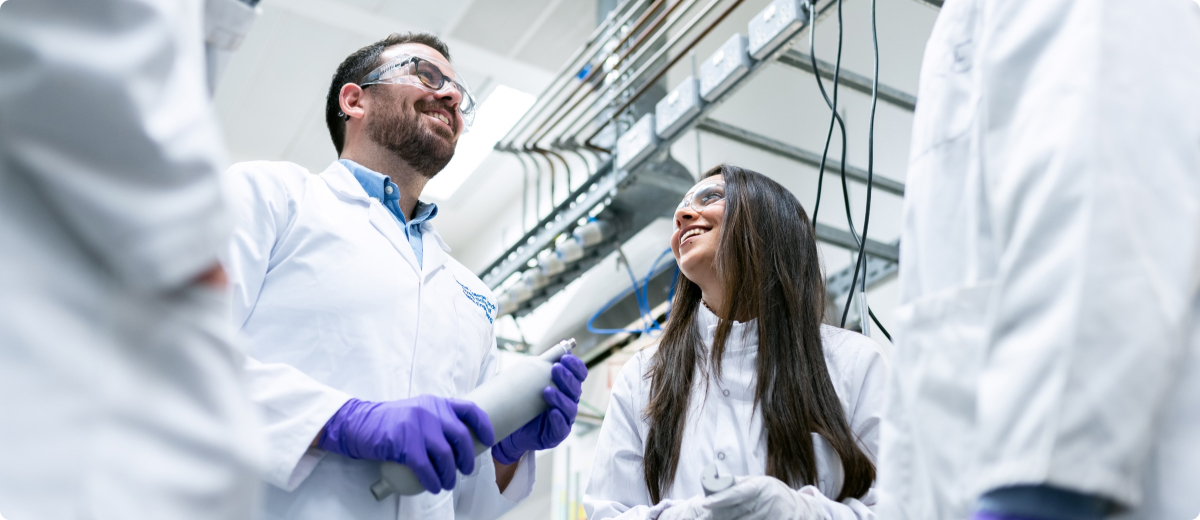
Water Quality Laboratory
Sample preparation
In our laboratories, we deal with different aqueous samples, which include tap water, surface water, rain off, wastewater or drinking water. Usually, to perform the analysis of our samples, we need to pre-process them. To do so, we use a filtration setup, oven or furnace, autoclave, centrifuge, solid phase extraction manifold or sonication bath.
Basic water quality parameters
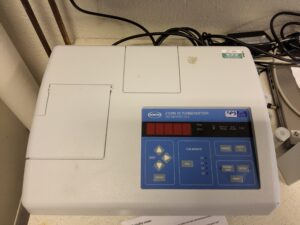
The quality of water that is treated in drinking or wastewater treatment plants must meet specific parameters. These requirements are necessary to ensure that treated water is free of contaminants that may lead to environmental and health problems. In our laboratories, we can measure the basic water quality parameters like pH, turbidity, solids and conductivity.
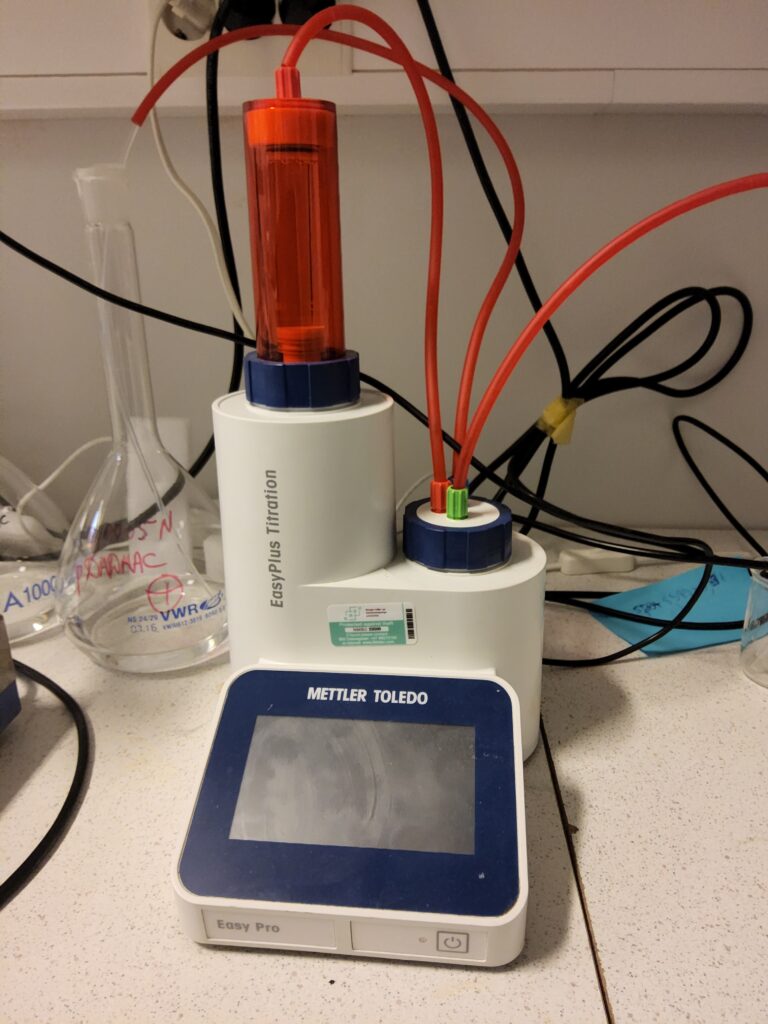
Automated Potentiometric Titrator
EasyPlus Automated Titrators from METTLER TOLEDO offer a simple and affordable solution for your routine titration applications. Save training time and make daily tasks simpler and more efficient thanks to the intuitive iTitrate user interface.
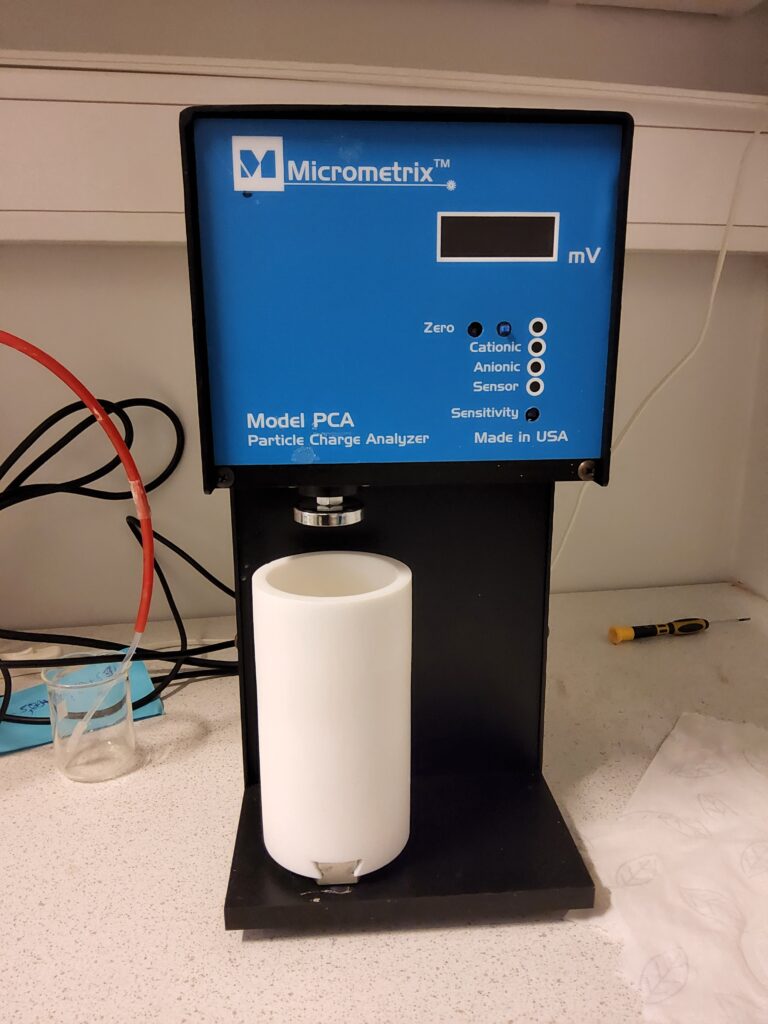
Particle Charge Analyzer
The Particle Charge Analyzer is a portable lab instrument that is used to determine optimum chemical dosage in water, wastewater and industrial processes. The analyzer can also be used for quality control of chemicals. The digital display indicates the polarity and charge (streaming current value) of the sample. The charge demand and optimum dose can be quickly determined with a simple titration.
We also have three equipments that are able to measure Chemical Oxygen Demand, nitrite, nitrate, ammonia or phosphorous concentrations. Depending on our needs and number of samples we can use:
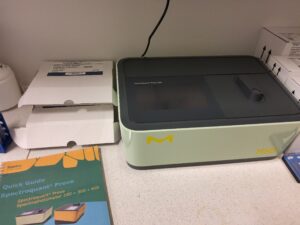
Spectroquant®System
With the Spectroquant we offer an innovative solution for all types of water testing. Waste water? Drinking water? Process water? – No problem. Just prove it! Simplicity, security and durability are just a few characteristics of these spectrophotometers. Pre-programmed for a wide range of test kits, water analysis has never been so easy and intuitive.
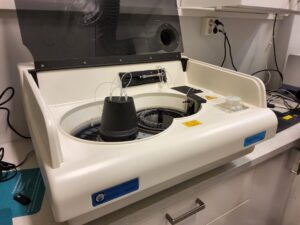
Systea Easychem
Complete automated way spectrophotometric methods by automatic programmed dispensing of liquid chemical reagents inside incubation cuvettes and then performing the absorption reading at a predefined wavelength in two main modes: extractive flow-cell, where the coloured reaction product is extracted from the incubation cuvette and brought inside a flow cell and then read there; the flow-cell is then washed for the next measurement, but the incubation cuvette cannot be reused again and it has to be replaced at the end of the measurement session; direct reading, that means reading the colour geerated by the chemical reaction in the same incubation cuvette ad then washing it automatically to be reused.
Sample analysis: advanced research purposes
HORIBA Aqualog®
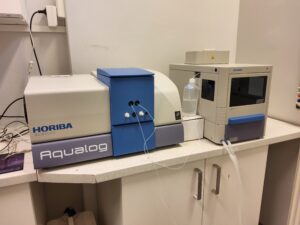
To understand better the chemistry of water samples and various pollutants, our laboratories are also equipped with more advanced instruments. To perform the spectral analysis of water samples, we can use an UV-Vis spectrometer our one of our newsest instrument, HORIBA Aqualog®, which measures both UV-Vis and fluorescence.
QQQ Inductively Coupled Plasma Mass Spectrometer:
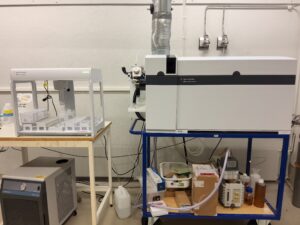
To measure different elements, such as As, Pb, Cd, Cu etc., that may be present in our matrix, we can use Inductively coupled plasma mass spectrometry (ICP-MS) is a type of mass spectrometry that uses an inductively coupled plasma to ionize the sample. It atomizes the sample and creates atomic and small polyatomic ions, which are then detected. It is known and used for its ability to detect metals and several non-metals in liquid samples at very low concentrations. It can detect different isotopes of the same element, which makes it a versatile tool in isotopic labeling.
We also have a possibility to measure the zeta potential or particle size of the solids suspended in water via two different instruments:
- Malvern Zetasizer Nano
- IZON qNano

